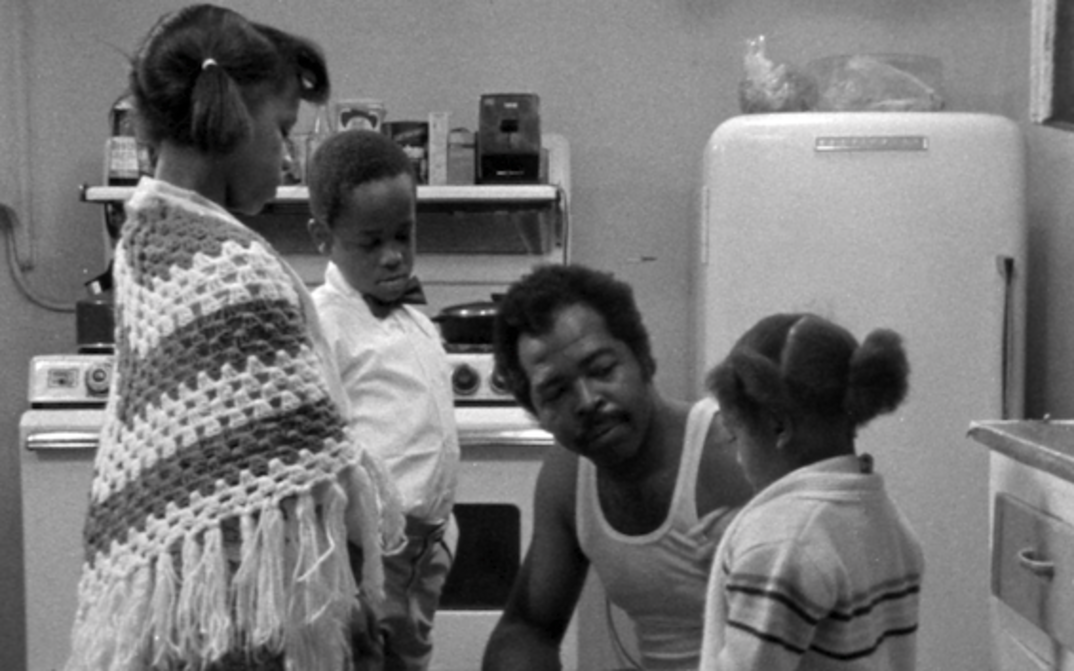Kinoteka Slovenska, Ljubljana: Political films from the Arsenal archive

Like Arsenal, Kinoteka Slovenska in Ljubljana is more than a meeting point and venue for screening films. It is a cinema and a museum, offering a wide range of educational programs, publishing books and magazines, restoring films, and creating a space for encounters. In October, it is hosting Arsenal on Location and a selection of political films from the Arsenal archive. One main focus is on the works of the African American director Billy Woodberry, a key figure of the L.A. Rebellion film movement.
NOW! (Santiago Álvarez, Cuba 1965) is a found footage film based on photos of the civil rights movement in the USA. COME BACK, AFRICA (Lionel Rogosin, South Africa/USA 1958), which was secretly filmed in Johannesburg, tells of the conditions of the Black population during the Apartheid era in South Africa. MARSEILLE APRÈS LA GUERRE (Billy Woodberry, USA 2015) is a poetic portrait of the dockworkers of Marseille after World War II. BLESS THEIR LITTLE HEARTS (Billy Woodberry, USA 1983) revolves around a family man in South Central Los Angeles whose livelihood is threatened by deindustrialization. MONANGAMBEEE (Sarah Maldoror, Algeria 1969) is a short film about the anti-colonial liberation struggle in Angola, about solidarity and resistance. MARIO (Billy Woodberry, Portugal/F 2024) follows the life and legacy of Mário Pinto de Andrade (1928–1990), founder of the Movimento Popular de Libertação de Angola (MPLA) and husband of Sarah Maldoror. THE SECOND JOURNEY (TO ULURU) (Corinne & Arthur Cantrill, Australia 1981) showcases Uluru, a 500-million-year-old rock formation, which is one of most sacred places for Australia's indigenous people. NUESTRA VOZ DE TIERRA, MEMORIA Y FUTURO (Marta Rodríguez, Jorge Silva, Colombia 1981) is a central work of Latin American political cinema that finds an aesthetic of resistance in indigenous culture. TECHQUA IKACHI – LAND, MY LIFE (Anka Schmid, Agnes Barmettler, James Danaqyumptewa, Germany/Switzerland 1989) tells the story of the Hopi in Arizona from their own perspective and is presented as a collage of film, photography, and painting. In MES VOISINS (Med Hondo, France, 1971), African migrants in Paris talk about their lives and racism in the labor and housing markets. For LA ZERDA ET LES CHANTS DE L'OUBLI (Assia Djebar, Algeria 1982) Assia Djebar recapitulated the colonialization of the Maghreb and created a new memory using avant-garde film techniques. In the early 1980s, with this poetic film essay, Djebar created a new way of understanding Algerian history.
All programs will be introduced by Angelika Ramlow. (22.–25.10.)